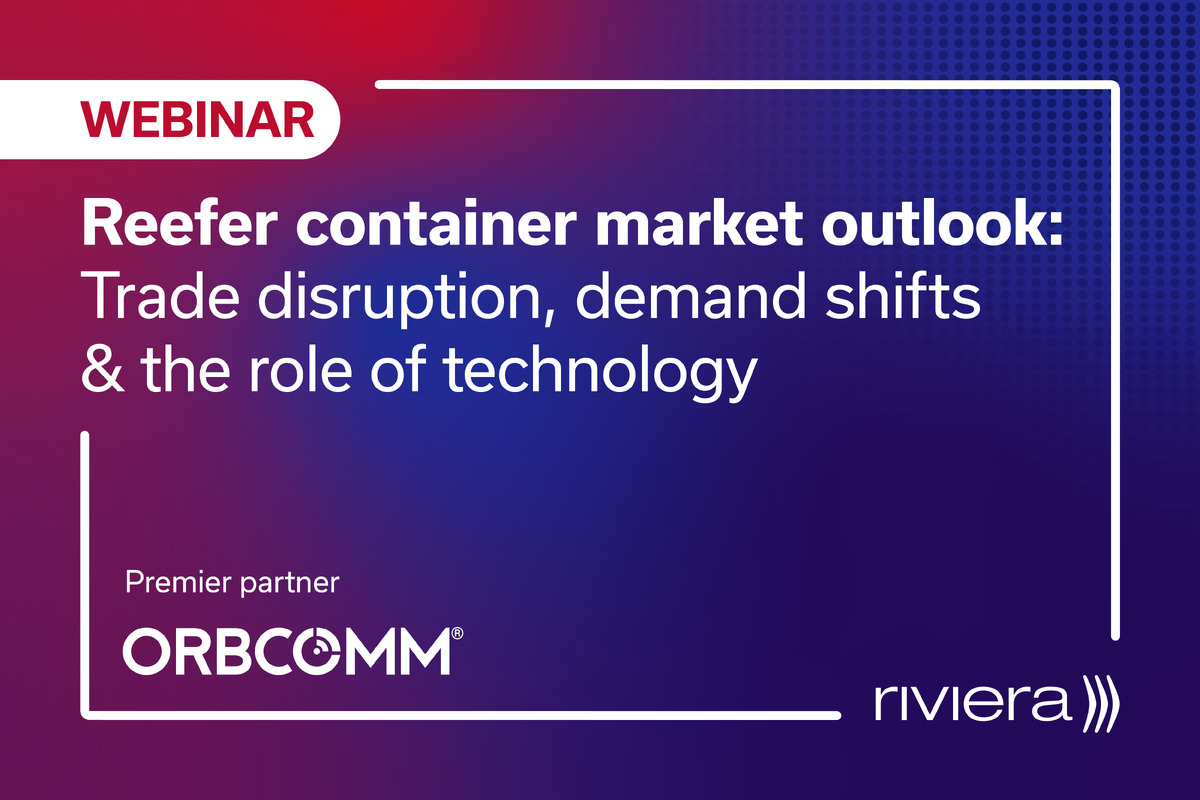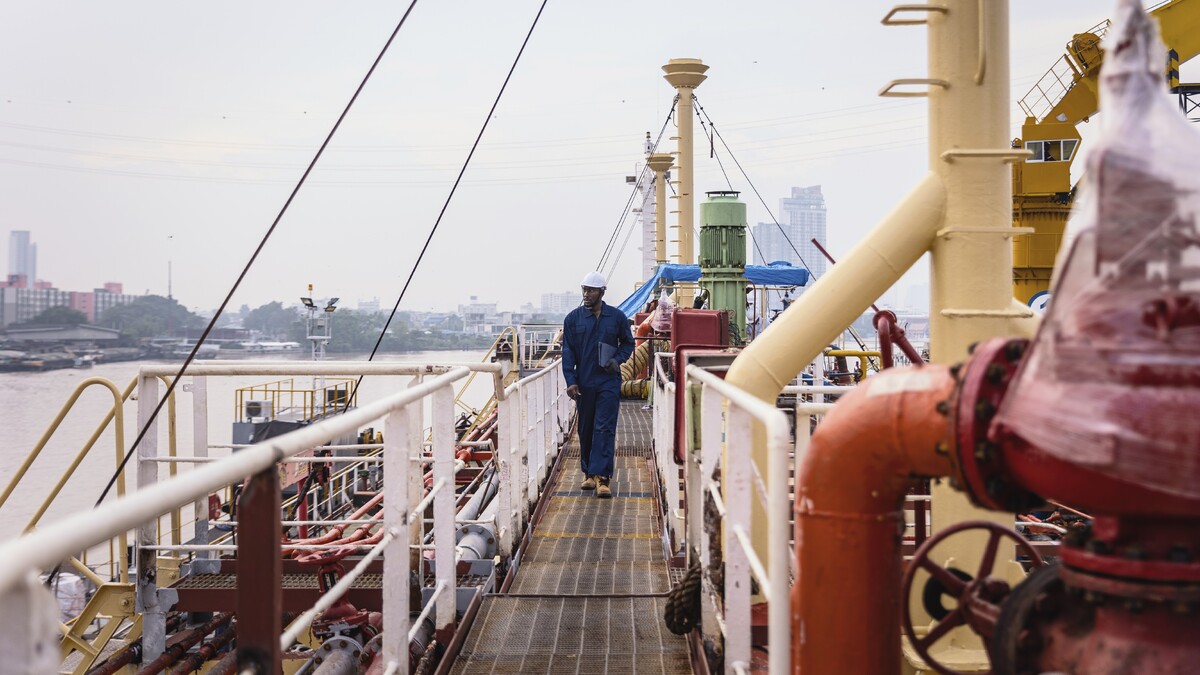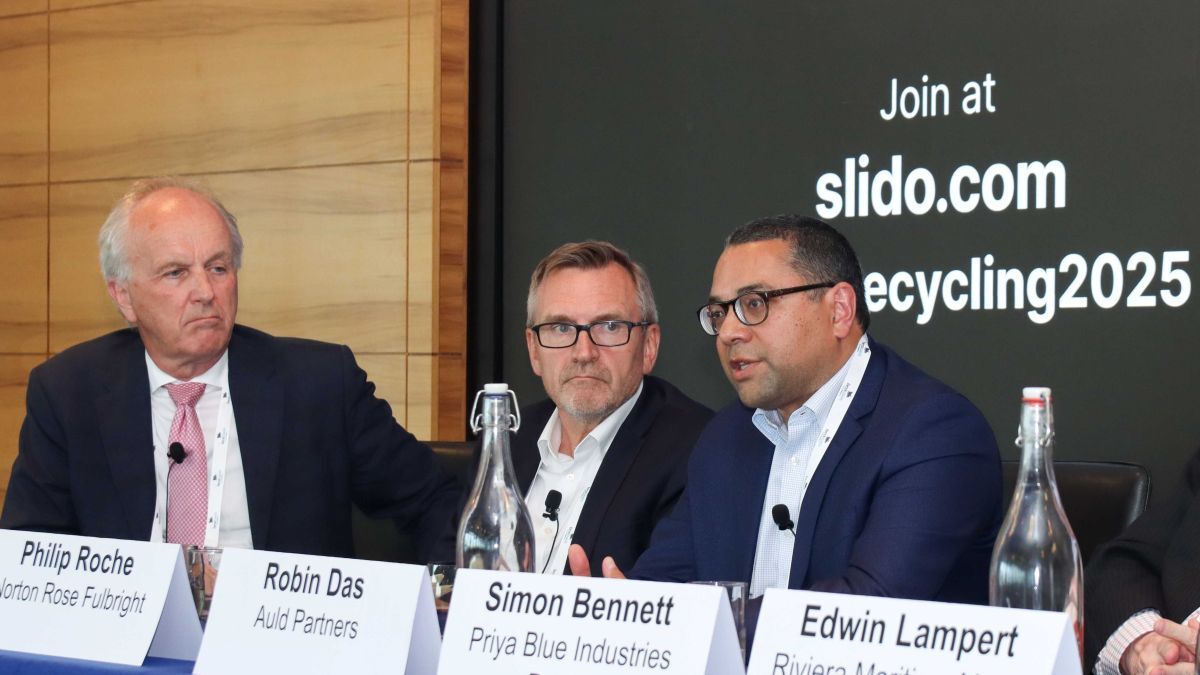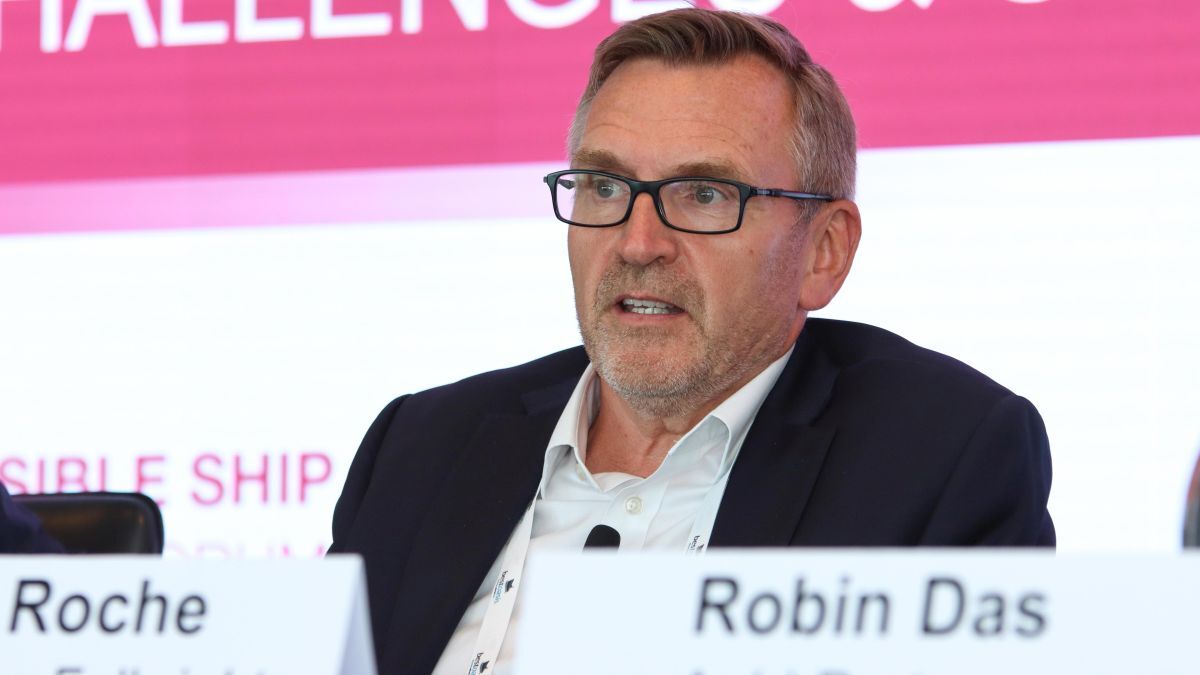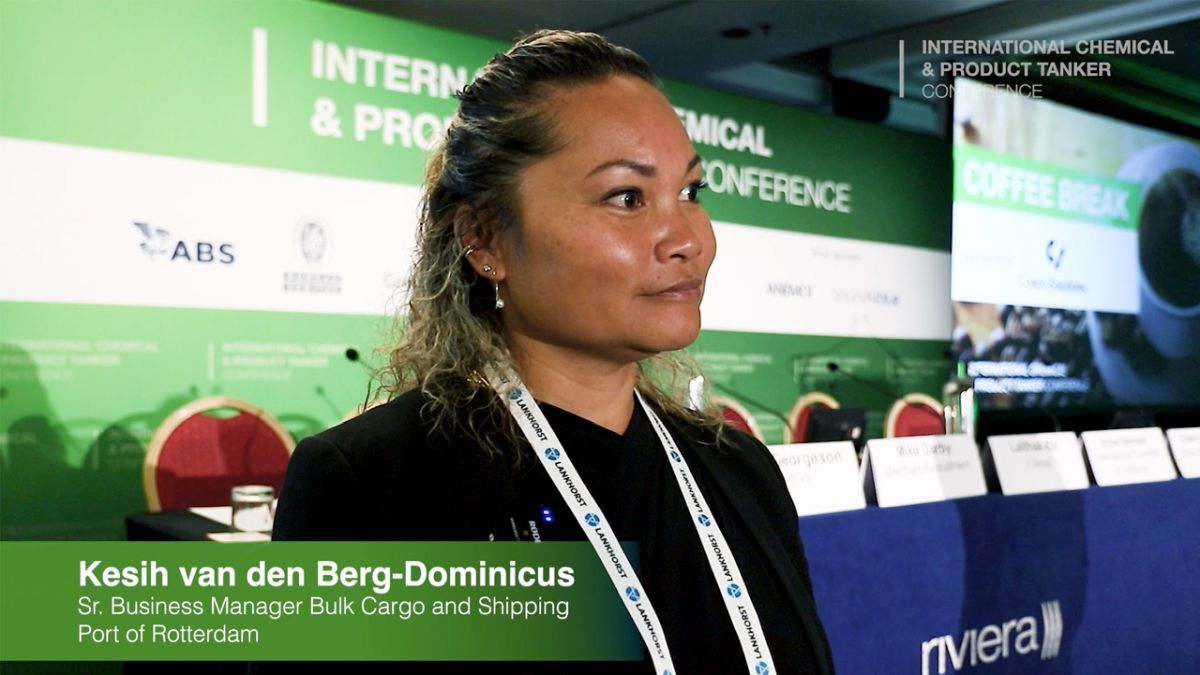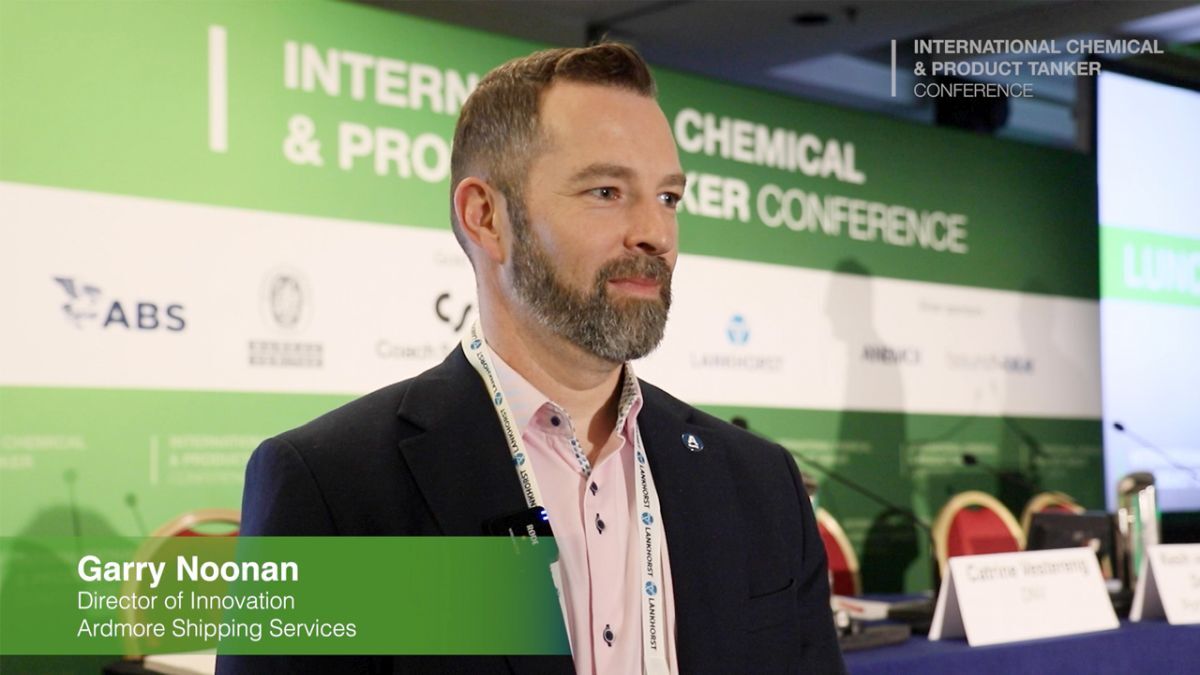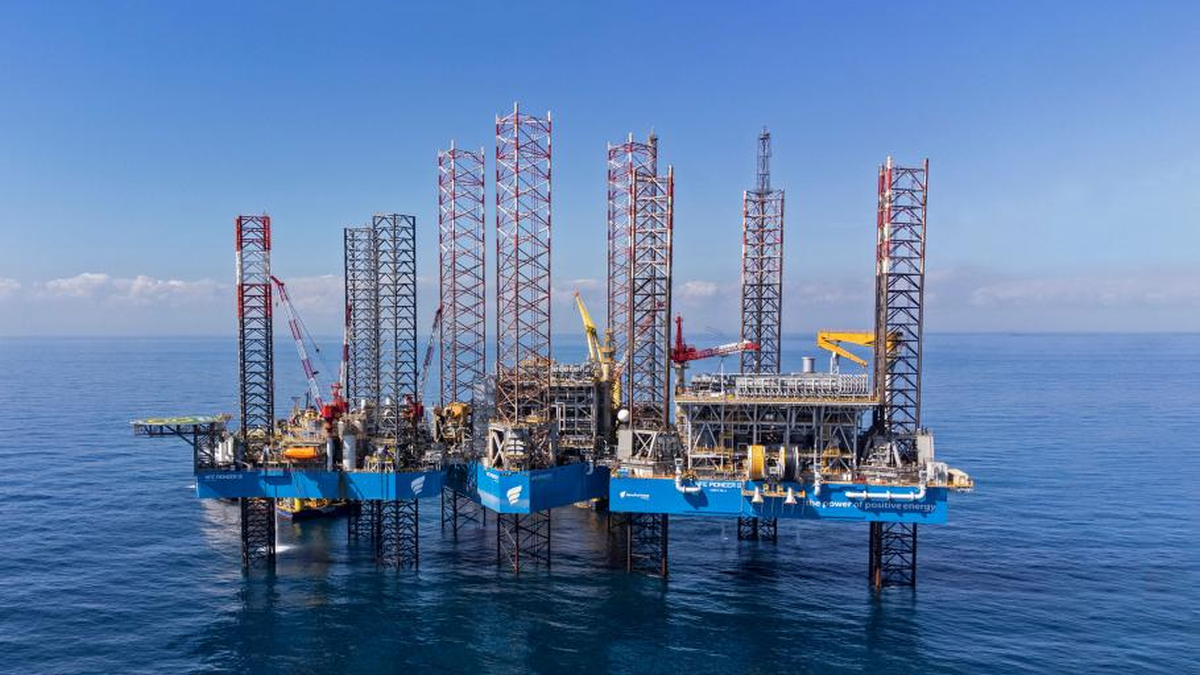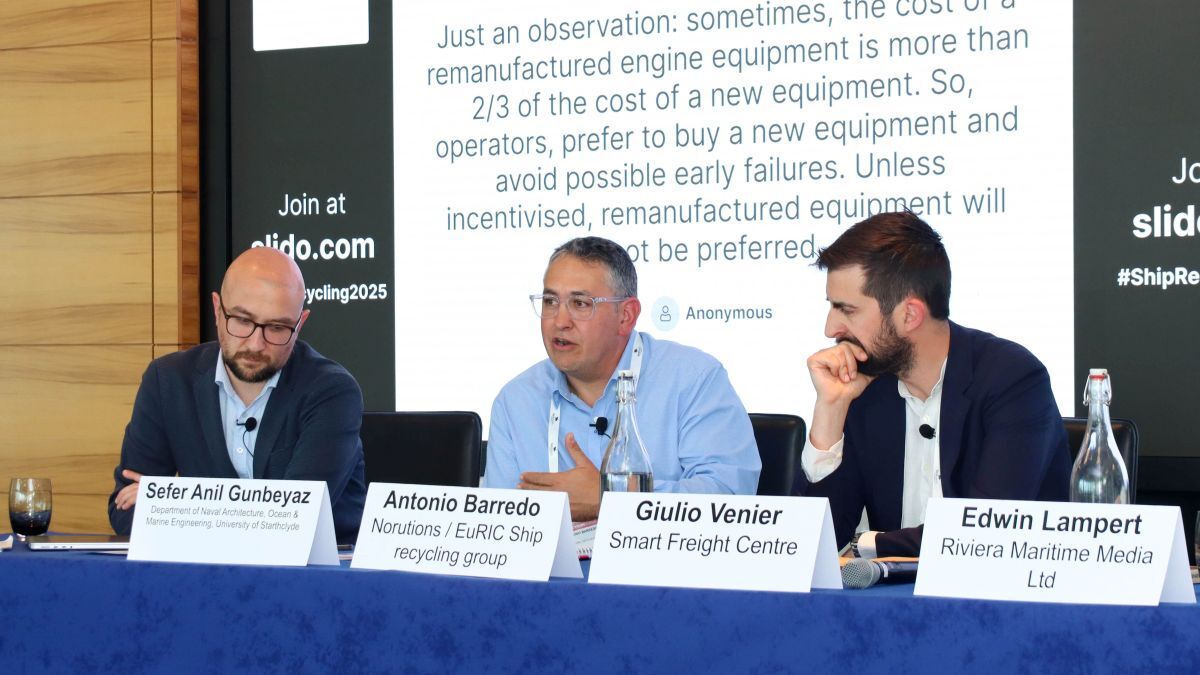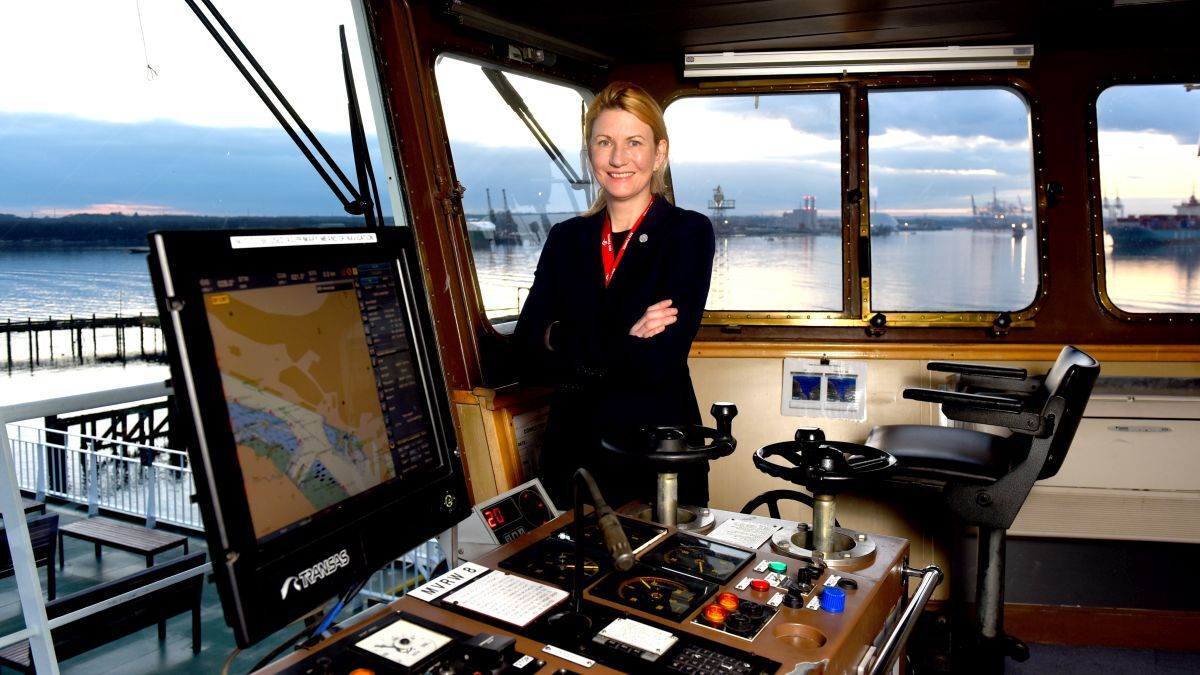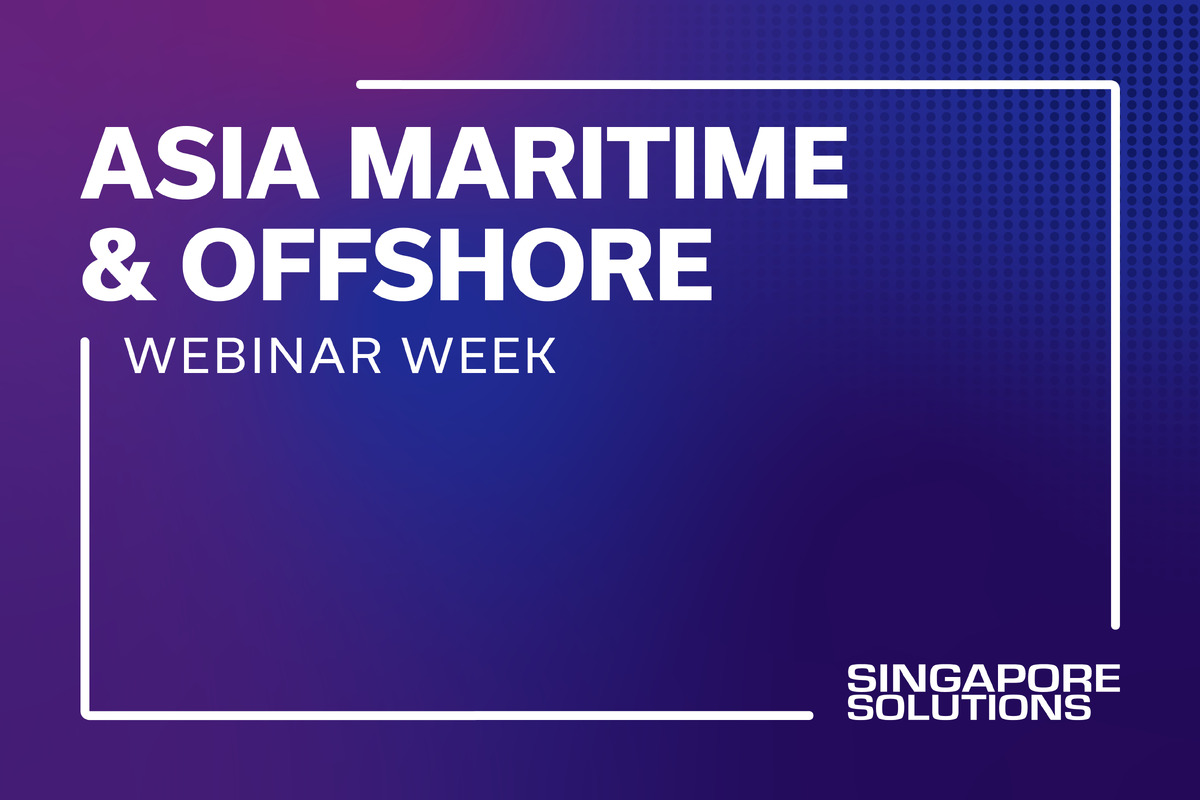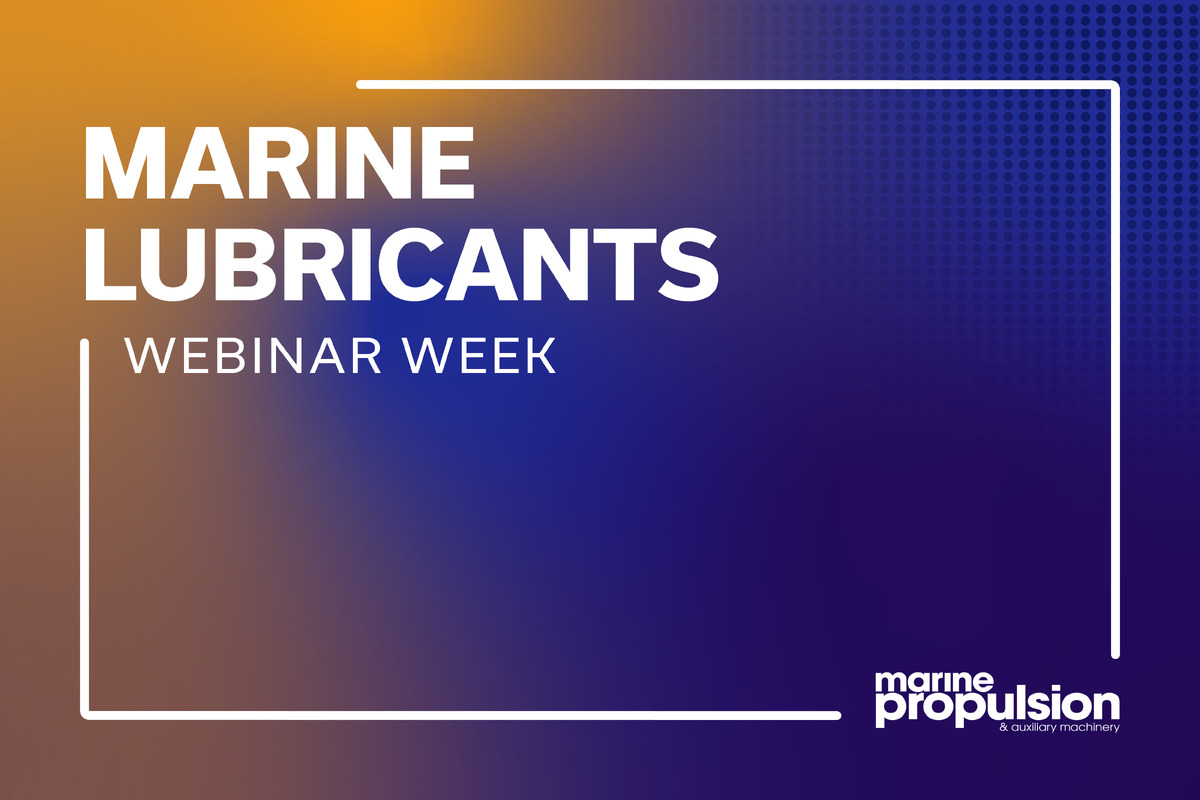Business Sectors
Contents
Register to read more articles.
Market mettle needed on variable recycling standards and iron-clad compliance
Leading shipping and recycling experts emphasised regulatory clarity and adherence to the Hong Kong Convention as essential during the concluding panel of the Responsible Ship Recycling Forum 2025
Global sustainability advisor at Priya Blue Industries, Simon Bennett, categorically rejected the idea of adapting standards for shadow fleet vessels. "Should we accommodate varying recycling standards? No, no, no, no," Capt Bennett stated emphatically. "It’s a very poor solution to try and adapt to a rubbish situation. There’s no reason we need varying recycling standards."
Capt Bennett argued for a clear regulatory delineation between maritime and waste management frameworks. "We have a perfectly good standard in the Hong Kong Convention, and the downstream recycling after that can be perfectly well handled by the Basel Convention," he explained. "The Basel Convention needs to get its fingers out of shipping and concentrate on waste and the environment, and leave shipping to IMO, which more or less knows what it’s doing there."
The panel acknowledged the practical difficulties of identifying vessels from the shadow fleet when they enter the recycling market. "We, the company I work for at the moment, Priya Blue, has never knowingly and would never knowingly recycle a ship which is on a sanctioned list from the shadow fleet," Capt Bennett emphasised, explaining the due diligence measures the company employs.
However, he highlighted the inherent challenges in verifying beneficial ownership. "People who invest US$20-$80M in a dodgy ship to carry dodgy cargo for dodgy regimes don’t call themselves the Dodgy Ship Company," Mr Bennett noted. "We don’t know who the directors are, and as little people who are not spies or financial forensic accountants, we will never know who the real owners are."
Norton Rose Fulbright partner and global co-head of shipping Philip Roche emphasised the urgency of resolving the regulatory conflict between the Basel and Hong Kong Conventions. "We have to get on with it – work out what is the problem that Basel has with the Hong Kong Convention and fix it," Mr Roche urged.
He cautioned regulatory clarity might not come soon, with resolution unlikely before the next Conference of the Parties to the Basel Convention in 2027. "Today, we have to work out what we do," Mr Roche advised. "You have to have a system, because the regulators are interested in finding people who they can make an example of… any shipowner that thinks that by staying under the radar the regulators aren’t going to notice is misguided. Keep in mind behind the regulators are the NGOs, who love to watch and to shape the community."
Founder of Auld Partners and former shipping banker, Robin Das, highlighted a fundamental shift in recycling responsibility affecting major shipping companies.
"I started looking at these issues about five years ago from a European perspective, a financing perspective, a larger owner perspective. I started off with the slightly naive view that this industry is bad, it needs to do better. Over the last five years, one of the things I’ve learned is that it isn’t all quite as black and white as I thought it may be."
His primary concern centred on the looming challenge for container shipping. "The recycling industry has not been able to improve over the last five years, because the shipping industry has done extremely well. So there is a dearth of ships that has been recycled," Mr Das explained. "One of the bigger challenges for the industry is what happens when the container liner operators market turns down. Many ships are not going to have a use. That downturn of the market will happen, it’s not a question of if, it’s a question of when."
This presents unprecedented challenges for major shipping companies. "Previously, if you were a very large shipping company, your solution to dealing with ship was to make it someone else’s problem," Mr Das explained. "You sold the ship when it was under 15 years, and it became someone else’s issue."
Mr Das predicted this approach would become increasingly untenable. "Many owners that never used to have to think about recycling ships are going to be driven into that direction, which means they need to think about their business differently," he suggested.
"If you are a major container line and suddenly there’s a big wave of ships you need to recycle in a compliant way, unfortunately there’s not going to be enough capacity in the market," Mr Das warned.
Principal at DEDRA.One, Detlef Drafz, brought a materials science perspective from his 30 years in recycling, encouraging the industry to fundamentally reframe its approach.
"I look at this differently,” Mr Drafz said. “This sounds to me as if the recycler is the undertaker. For me the recycler is the midwife – recycling means the thing gets prepared for a new life."
Mr Drafz advocated for a greater focus on maximising material value throughout the recycling process. He emphasised both material quality and optimised recycling have a direct impact on economic outcomes. Achieving this requires sophisticated material management. While understanding the complexity of these materials presents challenges, it also offers significant opportunities – particularly the potential to maximise top-line income. This is essential not only to cover the additional costs of regulation but also to enable the fair distribution of sales proceeds within the supply chain and, where appropriate, between shipowners.
The panel urged shipowners to adopt strategic approaches to end-of-life planning. "You have to have ironclad discipline," Mr Roche advised. "You have to have a system. You must stick with it. It is not sufficient to pretend you’re making one decision while you’re actually making another."
Sign up for Riviera’s series of technical and operational webinars and conferences:
- Register to attend by visiting our events page.
- Watch recordings from all of our webinars in the webinar library.
Related to this Story
MOL’s Takeshi Hashimoto: decarbonised fuels to be used in combination
Events
Reefer container market outlook: Trade disruption, demand shifts & the role of technology
Asia Maritime & Offshore Webinar Week 2025
Marine Lubricants Webinar Week 2025
CO2 Shipping & Terminals Conference 2025
© 2024 Riviera Maritime Media Ltd.
